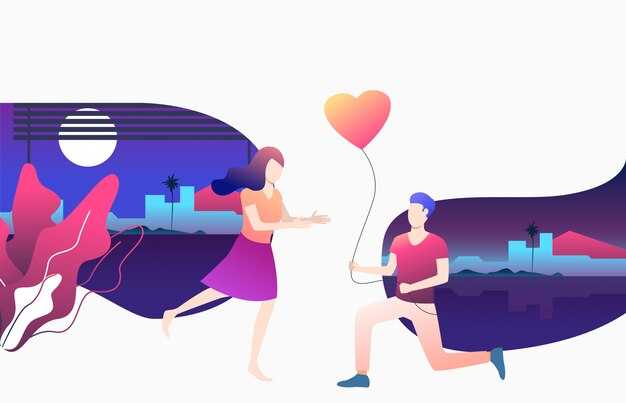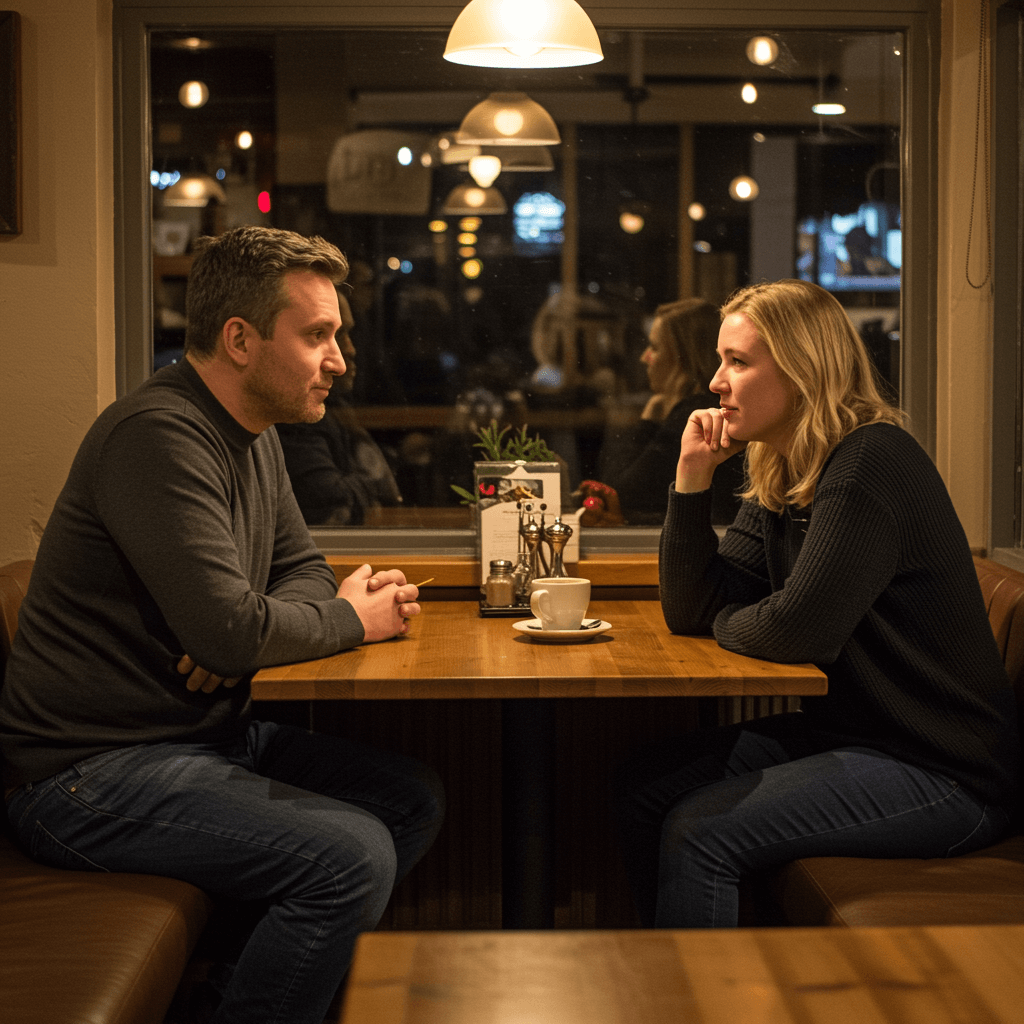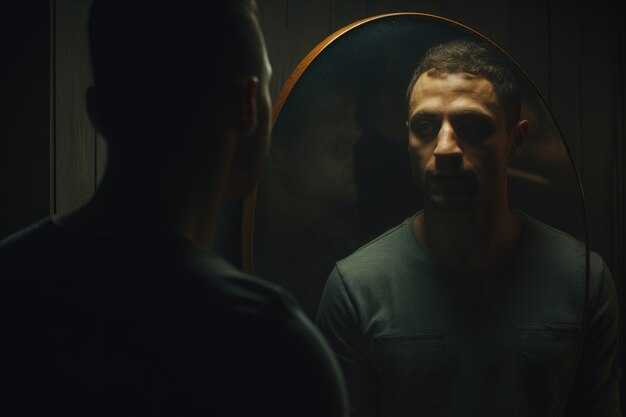Most people who have been in a relationship know what it’s like to fall in love, and many of us have also experienced the pain of unreciprocated feelings. But what happens when your partner wants to be with you and cares for you, yet admits they don’t “feel in love” with you? What does that even mean, and is there any chance their emotions will shift? Today’s letter comes from a woman I’ll call Kayla. She writes: dear fairy, my boyfriend loves me but is not in love with me. He confessed this to me after what was supposed to be our Valentine’s Day date. Okay — I’ve got my fairy pencil ready to mark a few things I’ll return to on a second read — let’s unpack Kayla’s story. We’d been back together a little over a year after reconnecting years after college. We first met while studying abroad and traveled the world together, making memories that stuck with me. That early romance didn’t last because we were young and needed to stay unattached to focus on our futures. Since we stayed friends it wasn’t hard to light that flame again; I’d always kept him in the back of my mind as “the one.” So I was ecstatic when he showed interest. He made grand promises to sweep me off my feet and I dove in eagerly. During the time apart I had other relationships and even fell in love. He, by contrast, said he’d never formed deep attachments in his dating life. He told me that after two years with an ex he ended it because he didn’t love her — and when I asked why it took him so long to realize that, he couldn’t give a clear answer. In our relationship we struggled with connection for most of the time. We were long-distance, seeing each other roughly once a month, but on the phone daily. A few months ago I moved to his city and we entered a new phase. Throughout, I raised concerns about feeling emotionally distant — wanting more quality time, needing reassurance and thoughtful gestures to feel loved. At first these felt like small things. For example, he uses his phone a lot. I would point out that given the distance and the limited time we had together, it didn’t make sense for him to be absorbed in his screen instead of being present with me. But my complaints seemed to fall on deaf ears; over time my attempts to connect faded and I accepted that I was spending time with someone who was more interested in his phone than in being engaged with me. Another problem was what I experienced as a lack of consideration. Some moments of selfishness were glaring and baffling. The most recent fight about this started after I’d worked a full day on nearly no food while he heated up a meal and didn’t offer any to me. He’d come over while I was swamped with work and, since I work from home, didn’t have time to cook. I grabbed snacks during the day and by the time I ordered dinner for both of us he’d already warmed his own food and never offered any. When I complained, he reacted with annoyance and said he was tired of constantly being expected to “roll out the red carpet” for me. Needless to say, that hurt. In recent months I’ve had to ask him repeatedly to make time for us. He was often traveling or booked with his friends. The worst example was when I came to his house for a weekend and that same evening he remembered plans and left me to go to a friend’s party. He seemed to habitually prioritize his friendships over our relationship instead of seeking a balance. Even this past weekend, what should have been our Valentine’s Day celebration was split with his friends — I’m not laughing at you, I’m laughing because this has happened to me too — he told me on the day of our date that he’d be leaving early the next morning to see friends and would be busy watching the Super Bowl on Sunday. The final blow came when we discussed meeting my family: he said he loved me but was not in love with me. That revelation sent me into a tailspin and absolutely gutted me. He asked that we go to therapy, though I’m skeptical it will help. I love him and he doesn’t seem to return the depth of feeling I have for him. I’ve been open and vulnerable the whole way — I disclosed my history of sexual abuse, and even when his response was lukewarm and he went back to scrolling on his phone, I kept showing up with full honesty. Now I feel like there’s nothing left to try, yet he keeps insisting on talking even after I asked for space. He now accepts that he needs therapy, which he’d always denied when I suggested it. He told me he struggles with vulnerability because it wasn’t modeled for him: his father was an alcoholic who left his mother to raise him and his brothers alone. He says he doesn’t want to dwell on negative feelings toward his dad and would rather move on. When he talks about emotions he can’t bring himself to use “I” statements and instead speaks in a distancing way, almost saying “you” instead of “I.” That deeply unsettles me and makes me feel he’s out of touch with his inner life — that’s called illeism, by the way, and it always bothers me when people speak like that. Now I’m at a crossroads. I’ve been in the painful place of loving someone who doesn’t love me back before, and I’m wary of allowing myself more harm by staying. Yet I’m asking if there’s any hope this can be salvaged. If he admits he’s not in love, can we continue together? Many thanks for your attention. Wow — what a painful situation. Let’s walk through some of what you shared and try to make sense of it. You dated in college, had that intense travel romance that was short-lived, and later reconnected. Short youthful romances often aren’t expected to become deep love affairs, so it’s understandable neither of you was fully in love then. He reached back out to you later, which suggests you held some significance for him, and it sounds like he may have hoped this would grow into a more conventional, committed relationship. His history — saying he’s never built strong attachments and that he couldn’t explain why he didn’t fall in love with a past partner — is telling. There are several possible explanations, but let’s look at the facts first. You moved to the same city as him — that’s a major step. It’s noteworthy that you did so before he’d told you he was in love; if someone isn’t emotionally invested, moving closer is risky. I understand why people sometimes feel they need to spend more time together to test things out, but once you were physically present, the disconnection persisted and, as you said, became more obvious. Wanting reassurance and thoughtfulness to feel loved is entirely normal and reasonable. Many of the issues you described initially seem small — like excessive phone use — and that’s a common complaint. Phones are seductive and distracting, and most people who do it would agree it’s inconsiderate and needs work. Still, in your situation his lack of presence was significant, and when your bids for connection were repeatedly ignored, you understandably stopped trying. Your use of the word “bids” suggests you’re familiar with the Gottman approach: researchers can often predict relationship outcomes based on how partners respond to small requests for attention, affection, or help. If those bids are regularly ignored, that’s a bad sign. Regarding the dinner incident, from his perspective he might have simply seen himself as hungry and not fully aware of the context of your stressful day. That can be true, yet it doesn’t absolve him from the way his behavior felt to you. The weekend where he chose friends over you, the Valentine’s split, and the prioritizing of social plans over shared time all point to someone who may be either clueless about what matters to a romantic partner or unwilling to shift priorities. The confession that he “loves” you but is “not in love” with you understandably landed like a bomb. You’ve been together a bit over a year, and that admission leaves you with real uncertainty. He now acknowledges he needs therapy, which he had earlier resisted. It’s common for people to hope therapy will “fix” a partner so they’ll love them the way they want to be loved — but that’s not a reliable strategy. If someone lacks the capacity for a certain kind of emotional involvement, therapy won’t guarantee a transformation into the person you need. He might be an “aromantic” person — that is, someone who doesn’t experience romantic attraction in the usual way. Signs of aromanticism can include not making romantic gestures, seeming oblivious to a partner’s emotional needs, and a history of not forming deep romantic attachments. What you describe — a pattern of not building strong attachments and lacking insight into why — could fit that profile. If his nature is simply not to fall in love in the conventional sense, it will be a hard road for a partner who’s waiting for that feeling to appear. Alternatively, his behavior might reflect an avoidant attachment style rooted in trauma. You mentioned his father’s alcoholism and abandonment; people with that background often develop avoidant strategies and have trouble accessing or expressing vulnerability. There are rare but real cases where a partner who initially couldn’t access feelings of love later did, sometimes after a significant event that shook them up — but that’s not something to count on or to try to engineer. The way he treats his father’s role in his life — insisting on “moving on” and dismissing strong feelings — is consistent with a defensive stance toward emotional pain. If he’s now willing to go to therapy, that’s a positive sign, but it doesn’t guarantee the outcome you want. If he’s requested couples counseling, that might be a constructive next step to help both of you understand the dynamics and see whether there’s potential to grow closer. A skilled therapist can help illuminate attachment patterns and communication habits, and sometimes that makes a meaningful difference. At the same time, you have every right to protect yourself: if being in a relationship filled with doubt and emotional scarcity is harmful to you, you don’t have to stay. Both choices — trying couples therapy or stepping away — are valid, and you get to decide what your heart and boundaries need. Wishing you the best, Kayla — this is a painful situation and there’s no way through it without some hurt. If anyone watching wants to clarify what a healthy partner looks like and craft their own vision of relationship needs, there’s a free download called “Signs of a Great Partner” you can get right there. I will see you very [Music]
![Most people who have been in a relationship know what it’s like to fall in love, and many of us have also experienced the pain of unreciprocated feelings. But what happens when your partner wants to be with you and cares for you, yet admits they don’t “feel in love” with you? What does that even mean, and is there any chance their emotions will shift? Today’s letter comes from a woman I’ll call Kayla. She writes: dear fairy, my boyfriend loves me but is not in love with me. He confessed this to me after what was supposed to be our Valentine’s Day date. Okay — I’ve got my fairy pencil ready to mark a few things I’ll return to on a second read — let’s unpack Kayla’s story. We’d been back together a little over a year after reconnecting years after college. We first met while studying abroad and traveled the world together, making memories that stuck with me. That early romance didn’t last because we were young and needed to stay unattached to focus on our futures. Since we stayed friends it wasn’t hard to light that flame again; I’d always kept him in the back of my mind as “the one.” So I was ecstatic when he showed interest. He made grand promises to sweep me off my feet and I dove in eagerly. During the time apart I had other relationships and even fell in love. He, by contrast, said he’d never formed deep attachments in his dating life. He told me that after two years with an ex he ended it because he didn’t love her — and when I asked why it took him so long to realize that, he couldn’t give a clear answer. In our relationship we struggled with connection for most of the time. We were long-distance, seeing each other roughly once a month, but on the phone daily. A few months ago I moved to his city and we entered a new phase. Throughout, I raised concerns about feeling emotionally distant — wanting more quality time, needing reassurance and thoughtful gestures to feel loved. At first these felt like small things. For example, he uses his phone a lot. I would point out that given the distance and the limited time we had together, it didn’t make sense for him to be absorbed in his screen instead of being present with me. But my complaints seemed to fall on deaf ears; over time my attempts to connect faded and I accepted that I was spending time with someone who was more interested in his phone than in being engaged with me. Another problem was what I experienced as a lack of consideration. Some moments of selfishness were glaring and baffling. The most recent fight about this started after I’d worked a full day on nearly no food while he heated up a meal and didn’t offer any to me. He’d come over while I was swamped with work and, since I work from home, didn’t have time to cook. I grabbed snacks during the day and by the time I ordered dinner for both of us he’d already warmed his own food and never offered any. When I complained, he reacted with annoyance and said he was tired of constantly being expected to “roll out the red carpet” for me. Needless to say, that hurt. In recent months I’ve had to ask him repeatedly to make time for us. He was often traveling or booked with his friends. The worst example was when I came to his house for a weekend and that same evening he remembered plans and left me to go to a friend’s party. He seemed to habitually prioritize his friendships over our relationship instead of seeking a balance. Even this past weekend, what should have been our Valentine’s Day celebration was split with his friends — I’m not laughing at you, I’m laughing because this has happened to me too — he told me on the day of our date that he’d be leaving early the next morning to see friends and would be busy watching the Super Bowl on Sunday. The final blow came when we discussed meeting my family: he said he loved me but was not in love with me. That revelation sent me into a tailspin and absolutely gutted me. He asked that we go to therapy, though I’m skeptical it will help. I love him and he doesn’t seem to return the depth of feeling I have for him. I’ve been open and vulnerable the whole way — I disclosed my history of sexual abuse, and even when his response was lukewarm and he went back to scrolling on his phone, I kept showing up with full honesty. Now I feel like there’s nothing left to try, yet he keeps insisting on talking even after I asked for space. He now accepts that he needs therapy, which he’d always denied when I suggested it. He told me he struggles with vulnerability because it wasn’t modeled for him: his father was an alcoholic who left his mother to raise him and his brothers alone. He says he doesn’t want to dwell on negative feelings toward his dad and would rather move on. When he talks about emotions he can’t bring himself to use “I” statements and instead speaks in a distancing way, almost saying “you” instead of “I.” That deeply unsettles me and makes me feel he’s out of touch with his inner life — that’s called illeism, by the way, and it always bothers me when people speak like that. Now I’m at a crossroads. I’ve been in the painful place of loving someone who doesn’t love me back before, and I’m wary of allowing myself more harm by staying. Yet I’m asking if there’s any hope this can be salvaged. If he admits he’s not in love, can we continue together? Many thanks for your attention. Wow — what a painful situation. Let’s walk through some of what you shared and try to make sense of it. You dated in college, had that intense travel romance that was short-lived, and later reconnected. Short youthful romances often aren’t expected to become deep love affairs, so it’s understandable neither of you was fully in love then. He reached back out to you later, which suggests you held some significance for him, and it sounds like he may have hoped this would grow into a more conventional, committed relationship. His history — saying he’s never built strong attachments and that he couldn’t explain why he didn’t fall in love with a past partner — is telling. There are several possible explanations, but let’s look at the facts first. You moved to the same city as him — that’s a major step. It’s noteworthy that you did so before he’d told you he was in love; if someone isn’t emotionally invested, moving closer is risky. I understand why people sometimes feel they need to spend more time together to test things out, but once you were physically present, the disconnection persisted and, as you said, became more obvious. Wanting reassurance and thoughtfulness to feel loved is entirely normal and reasonable. Many of the issues you described initially seem small — like excessive phone use — and that’s a common complaint. Phones are seductive and distracting, and most people who do it would agree it’s inconsiderate and needs work. Still, in your situation his lack of presence was significant, and when your bids for connection were repeatedly ignored, you understandably stopped trying. Your use of the word “bids” suggests you’re familiar with the Gottman approach: researchers can often predict relationship outcomes based on how partners respond to small requests for attention, affection, or help. If those bids are regularly ignored, that’s a bad sign. Regarding the dinner incident, from his perspective he might have simply seen himself as hungry and not fully aware of the context of your stressful day. That can be true, yet it doesn’t absolve him from the way his behavior felt to you. The weekend where he chose friends over you, the Valentine’s split, and the prioritizing of social plans over shared time all point to someone who may be either clueless about what matters to a romantic partner or unwilling to shift priorities. The confession that he “loves” you but is “not in love” with you understandably landed like a bomb. You’ve been together a bit over a year, and that admission leaves you with real uncertainty. He now acknowledges he needs therapy, which he had earlier resisted. It’s common for people to hope therapy will “fix” a partner so they’ll love them the way they want to be loved — but that’s not a reliable strategy. If someone lacks the capacity for a certain kind of emotional involvement, therapy won’t guarantee a transformation into the person you need. He might be an “aromantic” person — that is, someone who doesn’t experience romantic attraction in the usual way. Signs of aromanticism can include not making romantic gestures, seeming oblivious to a partner’s emotional needs, and a history of not forming deep romantic attachments. What you describe — a pattern of not building strong attachments and lacking insight into why — could fit that profile. If his nature is simply not to fall in love in the conventional sense, it will be a hard road for a partner who’s waiting for that feeling to appear. Alternatively, his behavior might reflect an avoidant attachment style rooted in trauma. You mentioned his father’s alcoholism and abandonment; people with that background often develop avoidant strategies and have trouble accessing or expressing vulnerability. There are rare but real cases where a partner who initially couldn’t access feelings of love later did, sometimes after a significant event that shook them up — but that’s not something to count on or to try to engineer. The way he treats his father’s role in his life — insisting on “moving on” and dismissing strong feelings — is consistent with a defensive stance toward emotional pain. If he’s now willing to go to therapy, that’s a positive sign, but it doesn’t guarantee the outcome you want. If he’s requested couples counseling, that might be a constructive next step to help both of you understand the dynamics and see whether there’s potential to grow closer. A skilled therapist can help illuminate attachment patterns and communication habits, and sometimes that makes a meaningful difference. At the same time, you have every right to protect yourself: if being in a relationship filled with doubt and emotional scarcity is harmful to you, you don’t have to stay. Both choices — trying couples therapy or stepping away — are valid, and you get to decide what your heart and boundaries need. Wishing you the best, Kayla — this is a painful situation and there’s no way through it without some hurt. If anyone watching wants to clarify what a healthy partner looks like and craft their own vision of relationship needs, there’s a free download called “Signs of a Great Partner” you can get right there. I will see you very [Music]](/wp-content/images/some-people-are-not-wired-to-experience-romantic-love-n2zvbzim.jpg)


 Some People Are Not Wired to Experience Romantic Love">
Some People Are Not Wired to Experience Romantic Love">






 The 5 Shocking Levels of Avoidants in Dating: Which One Are You?">
The 5 Shocking Levels of Avoidants in Dating: Which One Are You?">
 "I’m Not Sad He’s Dead."">
"I’m Not Sad He’s Dead."">
 How Trauma Bonds Wreck Your Mental Health">
How Trauma Bonds Wreck Your Mental Health">
 Don’t Stonewall the Narcissist.">
Don’t Stonewall the Narcissist.">
 The Final Desperate Move Avoidants Make When They See You Moving On">
The Final Desperate Move Avoidants Make When They See You Moving On">